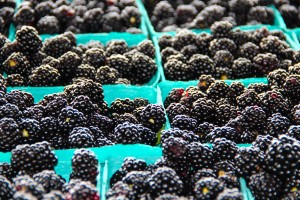I was about half way through David Brooks’ book The Social Animal: The Hidden Sources of Love, Character and Achievement (Random House, 2011) when it hit me: It’s social.
I first noticed Brooks’ book cradled in Renee Zellweger’s arm in a tabloid photo, after her break-up with Bradley Cooper. Maybe she was trying to find some closure, or plot her next move in the Hollywood dating scene. Anyway, after reading a few reviews, I finally picked up my own copy. An entertaining read, it’s an excellent follow-up to Daniel Goleman’s iconic book from 1995, Emotional Intelligence, which, incidentally, was required reading recently for some leadership training at my company. Seems like everywhere you go, people are socializing about our social-ness.
When Goleman wrote Emotional Intelligence, he was a science reporter for The New York Times. By exploring the evolutionary wiring of the human brain and the impact of our environment in the user-friendly style of a newspaper writer, he educated the non-scientist about the science behind our actions. Brooks’ Social Animal is an updated real-life application of Goleman’s work, told through the story of two characters, from before birth through the life they shared as a married couple.
I wanted to share with you a most interesting section of The Social Animal, in which Brooks compares two scientific ways of considering cause-and-effect relationships. The first is something called reductive reasoning. It is the process of breaking a problem down to its individual components, and determining the impact a given component might have on the problem. Though helpful for many situations when connecting cause to effect, it fails miserably for others. Take poverty, for example. It was evident that poor cultures seem to beget future poor generations, but Brooks found that when scientists tried to tie the impact of a specific variable to ongoing poverty, they came up with nothing.
So, he presents another way, citing something called the emergent system, which is better at explaining some self-perpetuating conditions like poverty. “Emergent systems exist when different elements come together and produce something that is far greater than the sum of their pieces. For example…sounds and syllables come together and produce a story that has an emotional power that is irreducible to its constituent parts,” Brooks writes.
In reductive reasoning, you assume that the condition in question is created by its components, but in the emergent system, the flow reverses. “Once a pattern is established in the emergent system, it has a downward influence of the behavior of the components,” Brooks explains. He continues, “Because of this, emergent systems are really good at passing down customs through generations. Once habits arise, future individuals adopt them unconsciously.”
Continuing with the example of poverty, as with any emergent system, “people who live in deep poverty are enmeshed in complex ecosystems no one can fully see and understand,” says Brooks. But he holds that this doesn’t mean you don’t try to alleviate the effects of poverty, rather, it means you don’t try to break down those effects into constituent parts. In an emergent system, no specific intervention is going to turn it around; you need a different approach: “If you can surround a person with a new culture,” Brooks concludes, “they will absorb new habits of thought and behaviors in ways you will never be able to measure or understand.“ Kind of like osmosis.
What? I thought change came about only through hard work and willpower. But Brooks suggests “you cannot remain in your current environment and rely on the force of individual willpower to turn your prospects around, because you would still be subject to the same emotional cues, which overpower conscious intention.” However, you can always make a decision to change your environment. And changing your environment is much easier than changing your insides. So, again, change your environment and then let the new social cues do the work.
Eureka! As I finished the chapter about cause and effect, it hit me. How does all of this relate to our country’s health crises? Yep. Perfect example of an emergent system.
Perhaps those who make improvements in their health and wellness by modifying their lifestyles have been exposed to an environment in which behaviors–once new to them–are the norm in that environment.
I’ve often wondered just why and how an idea that we initially resist will later “catch” us, taking hold and setting our course in a different direction. The Social Animal has helped me to gain some tactical understanding around what most people know intuitively–that when it comes to our choices about health, society plays an enormous part. (And, as Goleman stated over 15 years ago, to understand is to begin to change. So, just by sitting through this here today, you’re on your way.)
Personally, I happen to be moved to change by what I read, more than anything else. So placing myself in the environment of Brooks’ entertaining book helped me absorb a new concept. But for you, maybe it’s something else.
So go on, get out of here. Read! See! Go! Do! Inject yourself into a better environment, and let its norms and cues go to work on you.

